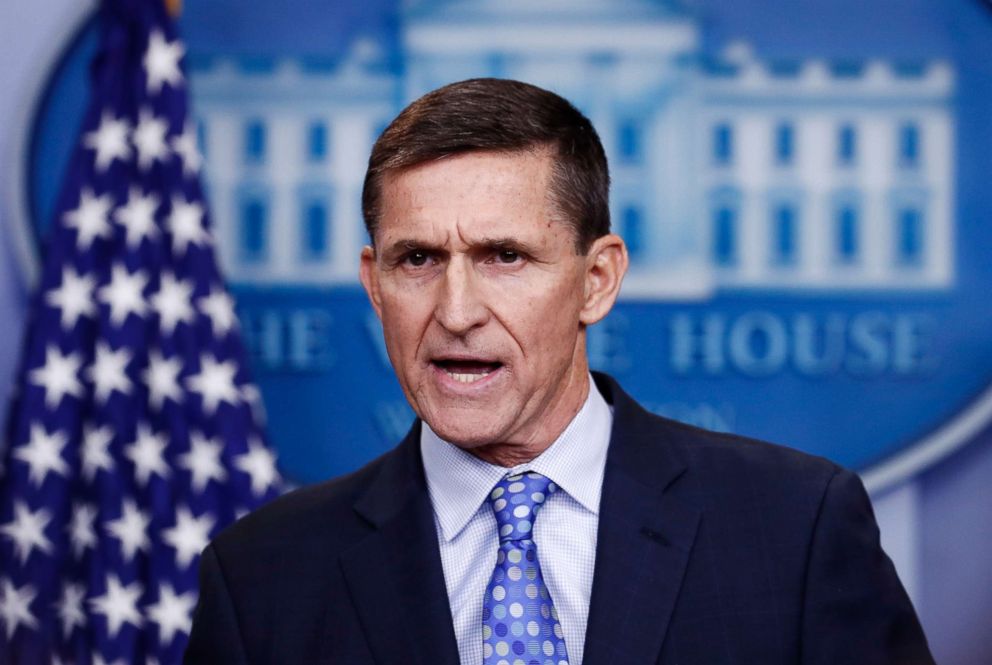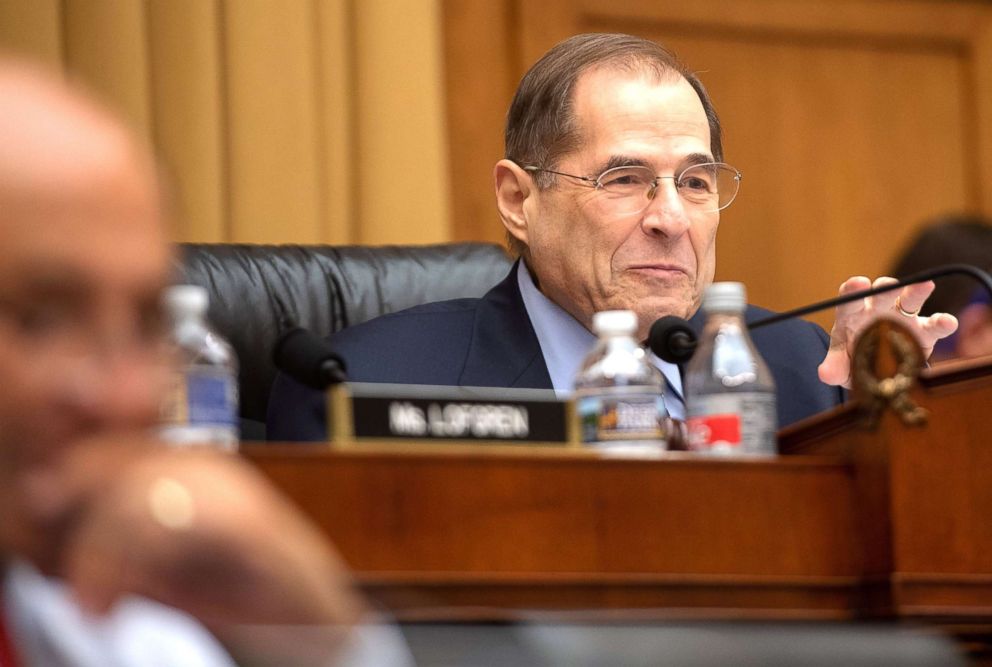Interest in Republican operative's Clinton email quest lingers long after his death
Peter Smith dove into the dark web in search of Hillary Clinton's emails.
Democratic lawmakers sent letters to more than 80 individuals and entities this week, launching a wide-ranging probe of President Donald Trump, his associates and others that threatens to beleaguer the administration for at least the next two years.
The list weaves through Trump's businesses, Trump's cabinet, Trump's family and friends, advisers and supporters, encompassing a cast of characters central to special counsel Robert Mueller's ongoing investigation of Russian interference in the 2016 election.
But one name, that of Peter Smith, stands out. Of the dozens of people Democrats are probing for information, only Smith, a Chicago investor and longtime Republican operative, is dead.
Letters sent to Smith's estate, Smith associate John Szobocsan, cybersecurity researcher Matt Tait, and Trump's former national security adviser Michael Flynn suggest that nearly two years after Smith's death, congressional investigators remain interested in his failed effort to obtain what he thought were tens of thousands of additional hacked emails from then-Democratic presidential candidate Hillary Clinton ahead of the 2016 election.
Lawmakers asked each of them for material related to "discussions or attempts to provide or receive election information, campaign data, or campaign communications with, to, or from foreign entities and individuals in connection with the 2016 U.S. Presidential primary or general elections."
An attorney for the Smith estate has not responded to a request for comment from ABC News.
In May 2017, Smith told The Wall Street Journal that he had launched an effort ahead of the 2016 presidential election to recover more than 30,000 emails Clinton said had been deleted from her personal server that he believed were actually stolen, potentially by foreign hackers. The 81-year-old claimed to have found five groups on the dark web, including two he suspected were Russians, that said they were in possession of the emails, and Smith said he managed to obtain some of them but was ultimately unable to verify whether they were real.
Ten days after speaking with the Journal, Smith, who suffered from health issues, committed suicide, according to The Chicago Tribune.
While Smith had insisted his efforts were independent from the Trump campaign, congressional investigators have long questioned what role, if any, Trump-linked figures may have played in the Smith's search. Both the House and Senate Intelligence Committees have previously obtained documents from the Smith estate, as have investigators working for Mueller.
Tait, a former British intelligence officer who said Smith attempted to recruit him to the endeavor, wrote in a blog post Smith had implied connections with prominent individuals working for then-candidate Trump, including Flynn -- an idea dismissed in October by a source close to Flynn.
"I think it was a passing relationship at best," the source told ABC News of Flynn's ties to Smith.

Smith's quest to obtain Clinton's emails is believed to be the final but hardly the first time he pursued an aggressive, behind-the-scenes agenda inside what journalist David Brock once called the "gothic world of anti-Clintonism."
Smith briefly came to national prominence in the 1990s when it was revealed he was a key player behind the Troopergate scandal, in which local law enforcement officials in Arkansas claimed that they helped cover up various alleged affairs by then-Arkansas governor Bill Clinton.
Smith, at the time, reportedly was a leading donor to GOPAC, the conservative political action committee once chaired by former GOP House Speaker Newt Gingrich. Smith tipped off Brock, a rising conservative media star, to the troopers' stories, leading to an explosive article in the right-leaning magazine American Spectator in 1993.
In an interview in October, Brock, who by then had long ago switched his ideological allegiance to the left and founded the left-leaning media watchdog Media Matters, described Smith's interest in the Clintons as "an obsession."
"I think he was inclined toward conspiracy-minded thinking," Brock told ABC News. "He was very secretive, very conspiratorial."
Though the Troopergate scandal did damage President Bill Clinton, sparking a lawsuit that indirectly led to his 1998 impeachment, Smith told the Chicago Sun-Times he considered the effort -- which cost him some $80,000 for legal advice, public relations consultants and other expenses, including a gift to two troopers and their attorney -- a disappointment.
"I feel like a failure for not having it out before the 1992 election," Smith said.

After Troopergate, Smith appears to have continued to keep an eye on politics. Charles Ortel, a retired Wall Street financier who said his self-appointed "mission" is to investigate the Clinton Foundation, said he was introduced to Smith in 2015 as someone who could help expose purported wrongdoing by the charity. When Smith told Ortel about the Clinton email hunt, Ortel said he tried to dissuade Smith from pursuing it.
"It wouldn't stop Peter from doing whatever it was he did," Ortel told ABC News.
After Smith's death, court filings in the struggle over his estate presented a fractured picture of the man, revealing a web of investments and technological firms and alleged debts in excess of tens of thousands of dollars to more than a dozen parties. Many of the smaller claims against the estate were settled or dismissed, but court records indicate the case remains ongoing.
Several individuals listed as former business associates of Smith in public records did not respond to requests for comment, but court filings suggest some professional relationships had deeply soured in his final years.
John Purcell and Alton O'Neil, two longtime business associates of Smith, said in their filings, "[Smith] had the appearance of being extremely successful in his various endeavors, and he developed many close and longterm professional relationships. ... In reality, however, the Decedent engaged in a regular pattern and practice of manipulating, deceiving and exploiting those around him for his personal gain, relying upon his prestige and reputation as an esteemed and respected businessman in doing so."
Another claim, that of Smith's longtime business associate Szobocsan, mentions Mueller's probe directly. Szobocsan said in court papers that he ran up attorney fees topping $25,000 for the three meetings he had with the special counsel's office and one meeting with the Senate Intelligence Committee, and he wanted the Smith estate to reimburse him.
Richard Porter, a friend of Smith's and an Illinois Republican National Committeeman, told ABC News in October Smith did business with a lot of people and said he was a good businessman.
"He was a fine fellow," Porter said. "I am sorry for his family. [He was a] very private guy who lived a full successful life; still, sad and shocking that he decided to end it."
Writer Thomas Lipscomb, who told ABC News in November he was contacted by Smith in 2004 after writing about then-Democratic presidential candidate Sen. John Kerry's military records for the Chicago Sun-Times, said he kept in touch with Smith until his death. Especially in his last years, Lipscomb said, Smith was casting about for "sunset glory and recognition."
"I knew Peter Smith for 14 years," Lipscomb wrote in RealClearPolitics in October, "and watched him devolve from a canny financier and a player in the Chicago GOP to a bankrupt octogenarian, cadging money from his friends and trying to raise funds on a loopy mission to somehow get his hands on the 33,000 deleted Hillary Clinton emails he was sure would guarantee Trump's election."




